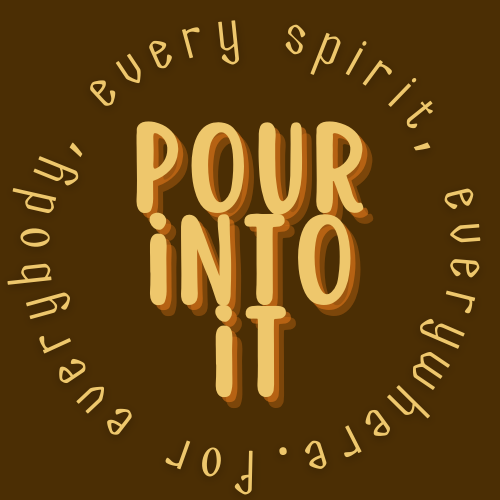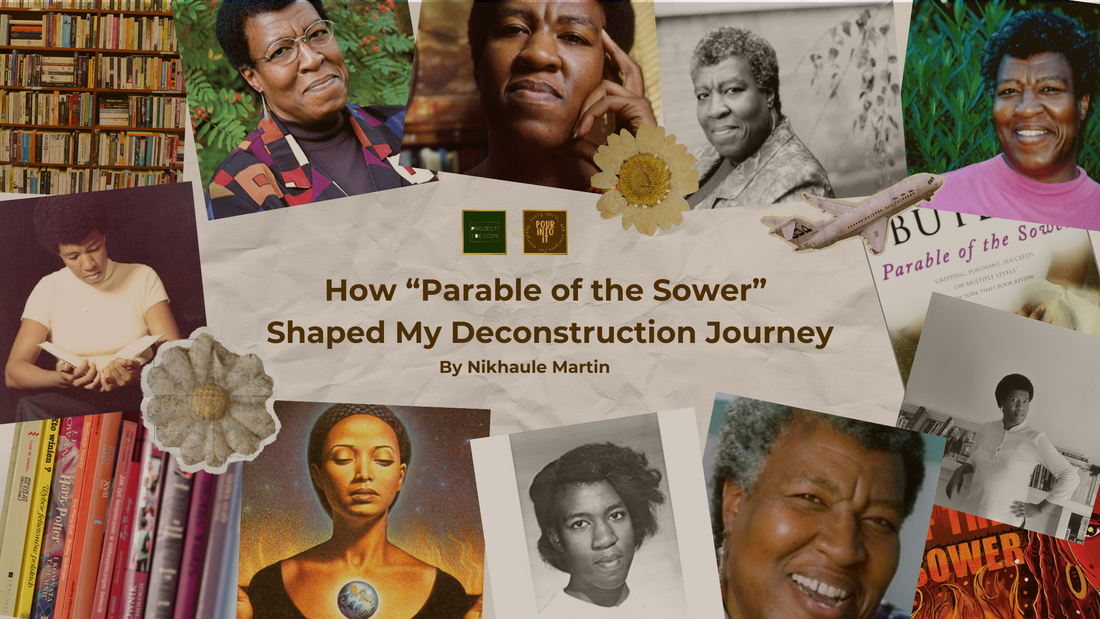Parable of the Sower is a brilliant dystopian, science fiction novel written by Octavia E. Butler, and it’s by far one of the most impactful books I’ve read. Published in 1993, this post-apocalyptic novel tells the story of Lauren Olamina, a young woman who was run out of her community in California after it was destroyed by scavengers. Set in 2024, the novel opens with Lauren struggling with getting baptized under a God that no longer resonated with her while witnessing the decline of the community she grew up in. As the novel unfolds, we learn more about Lauren’s discovery of Earthseed, a belief system that she was called to. Reading her spiritual journey has profoundly influenced my deconstruction and exploration period following my exodus from the church.
Both Lauren Olamina and I grew up in a close, tight knit community. Lauren grew up in her community in Robledo, where her father was a Baptist preacher and community leader. I grew up on the Southside of Chicago, attending church weekly with my parent – sometimes more than once a week. I sat through endless Bible study sessions, and was even baptized under the faith I was raised in. Both of our parents are deeply community oriented, yet neither one of us remained with the God we were taught to believe. Instead, we intentionally carved out our spiritual journey and belief systems.
“I let my father baptize me in all three names of that God who isn’t mine anymore.” Lauren Olamina, Parable of the Sower
Throughout the novel, we see Lauren continuously grappling with Earthseed. In the earlier chapters, Lauren openly expresses her confusion and questions around the God of her father – something that deeply resonates with me. Her community of Robledo mirrored the church community I grew up in: tight-knit families who had known each other for years. Both communities reflected traditional gender roles, and characters like Mrs. Sims imitated the church mothers I grew up knowing.
I appreciated reading Lauren’s critique of the God of the Bible. Her questions and comments are ones that would often result in backlash in the church. Both Lauren and I struggle with the story of Job. Feeling as if the God of the Bible, in moments, “sounds a lot like Zeus – a super powerful man, playing with his toys the way my youngest brothers play with toy soldiers.” Reading this novel made me feel affirmed in the questions and hesitations I had with both the church and the Bible, and for that, I’m grateful.
“But what if all that is wrong? What if God is something else altogether?” Lauren Olamina, Parable of the Sower
Reading Lauren’s story and witnessing her unapologetic pursuit of taking root among the stars has been both grounding and reflective. Even in moments of uncertainty and impending danger, Lauren remained steadfast in her belief of Earthseed. She shamelessly questioned the God she no longer believed in, and through her journey with Earthseed she was intentional about creating and building community. Earthseed serves as a framework for the work Lauren does in the world, and I draw inspiration from her commitment and resilience.

